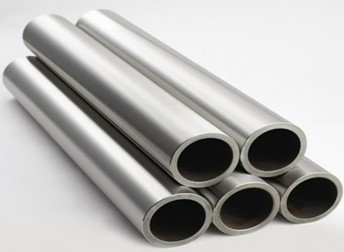Why Monel Metal Is the Best Choice for Fasteners in Harsh Conditions

When it comes to selecting fasteners for demanding environments, the material choice is critical. Fasteners must withstand not only mechanical stress but also environmental factors such as corrosion, temperature extremes, and exposure to chemicals. Among the various materials available, Monel metal stands out as an exceptional choice for fasteners in harsh conditions. Known for its impressive corrosion resistance, strength, and durability, Monel metal is often the preferred material for applications in marine, chemical, and oil and gas industries. For those sourcing high-quality materials, reputable Monel suppliers play a crucial role in ensuring the reliability and longevity of fasteners used in these challenging environments.
Understanding Monel Metal
Monel metal is a group of nickel-copper alloys that are renowned for their excellent resistance to corrosion, especially in acidic and alkaline environments. The most commonly used grades of Monel are Monel 400 and Monel K-500, both of which offer distinct advantages depending on the application.
Monel 400: This grade contains approximately 67% nickel and 23% copper, making it highly resistant to a variety of corrosive media. Monel 400 is particularly effective in resisting seawater and is often used in marine applications.
Monel K-500: An enhanced version of Monel 400, this grade includes small additions of aluminum and titanium, which provide increased strength and hardness through precipitation hardening. Monel K-500 retains the excellent corrosion resistance of Monel 400 but offers greater mechanical properties, making it ideal for high-stress environments.
Why Monel Metal Excels in Harsh Conditions
- Superior Corrosion Resistance
One of the primary reasons why Monel metal is preferred for fasteners in harsh environments is its unparalleled corrosion resistance. In marine environments, where exposure to saltwater is constant, Monel metal fasteners are highly resistant to pitting and crevice corrosion, which are common issues with other materials. This resistance extends to acidic and alkaline environments, making Monel metal suitable for use in chemical processing plants where fasteners are exposed to corrosive chemicals.
- High Strength and Durability
Fasteners made from Monel metal are not only resistant to corrosion but also possess high strength and durability. This makes them capable of withstanding the mechanical stresses encountered in demanding applications. Monel K-500, with its added strength, is particularly effective in situations where fasteners are subject to high loads and severe mechanical forces. The alloy’s toughness ensures that fasteners remain secure even under extreme conditions, reducing the risk of failure.
- Temperature Stability
Monel metal fasteners are known for their excellent performance across a wide range of temperatures. Whether in cryogenic conditions or in environments with elevated temperatures, Monel metal maintains its mechanical properties, ensuring reliable performance. This temperature stability is crucial in industries such as oil and gas, where equipment is often exposed to both very high and very low temperatures.
- Resistance to Biofouling
In marine environments, biofouling— the accumulation of marine organisms on surfaces—can be a significant problem. Fasteners made from Monel metal have been shown to resist biofouling better than many other materials, reducing maintenance needs and extending the life of the fasteners. This makes Monel metal an excellent choice for underwater applications, including shipbuilding and offshore platforms.
- Cost-Effectiveness in the Long Term
While Monel metal fasteners may have a higher upfront cost compared to those made from standard steel or other alloys, they often prove to be more cost-effective in the long term. The durability and resistance to corrosion and other forms of environmental degradation mean that Monel metal fasteners require less frequent replacement, leading to lower maintenance costs and reduced downtime.
Applications of Monel Metal Fasteners
Given its outstanding properties, Monel metal fasteners are used in a variety of industries where harsh conditions are the norm:
Marine Industry: Monel metal fasteners are commonly used in shipbuilding, particularly in components that are in constant contact with seawater, such as propeller shafts, pumps, and valve components.
Chemical Processing: In chemical plants, where exposure to corrosive chemicals is frequent, Monel metal fasteners are used to secure equipment and piping systems.
Oil and Gas: The oil and gas industry relies on Monel metal fasteners for offshore drilling platforms and other equipment exposed to the harsh marine environment and high-pressure conditions.
Aerospace: Monel metal fasteners are also used in aerospace applications, particularly in areas where high strength and corrosion resistance are critical.
Conclusion
In environments where corrosion, extreme temperatures, and mechanical stress are significant concerns, Monel metal stands out as the best choice for fasteners. Its superior resistance to corrosion, high strength, temperature stability, and resistance to biofouling make it an ideal material for applications in marine, chemical, oil and gas, and aerospace industries. Although the initial cost may be higher, the long-term benefits of using Monel metal fasteners, including reduced maintenance and increased reliability, make it a cost-effective solution for harsh environments.




